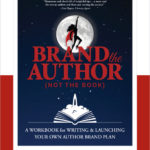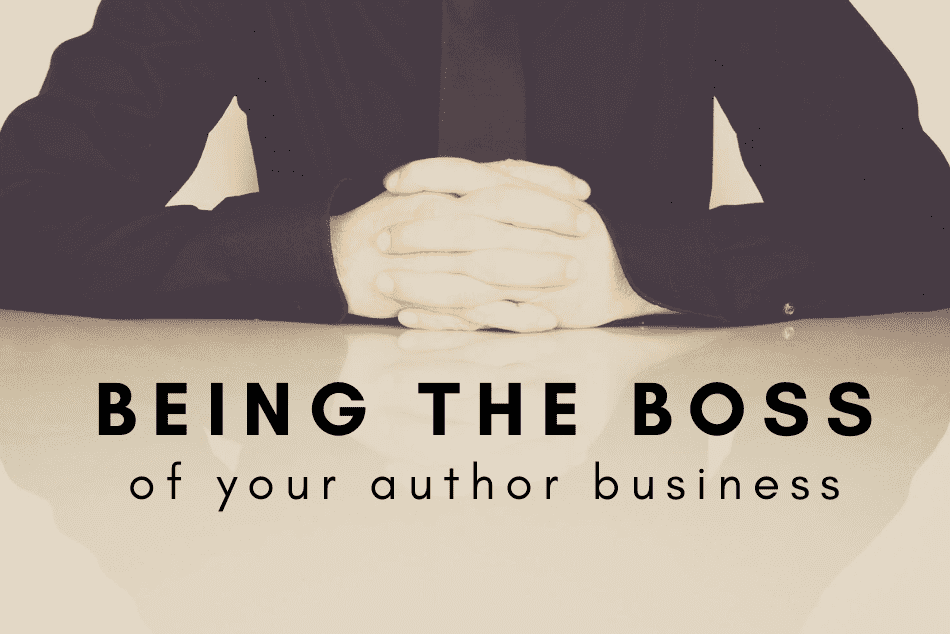By Karen A. Chase
Publishing is an industry rife with rejection. Reviewers, agents, editors, publishers… So. Much. Rejection. We send out queries, wring our hands, revise and revise again, and hope someone—anyone—will pull us from the dreaded slush pile. This approach can feel powerless and painful, but there is a way to ease that suffering. To regain that power.
It begins by repeating (even shouting aloud) one little phrase. “I am the Boss of My Author Business!”
We all know, of course, that this writing and publishing venture is a business. But do you think of it as your business? In my years working with fellow authors (traditional and self-published) on their brands and business plans, I’ve zeroed in on what I call the Three H-Factors: aspects that can help structure and empower your writing life by cultivating a business mindset.
Factor One: Hours
I’ve met so many authors who just want to spend all their time writing. But the job involves so many more hats. With or without a big publisher behind our work, we’re all brand ambassadors, marketing managers, and event coordinators, to name a few.
Think of yourself like a vintner. Would a winemaker produce barrels of Chardonnay without ever figuring out how to bottle, market, and distribute that luscious stuff to those eager to drink it? No.
Books, like wine, are meant to be consumed.
Which means we have to dedicate separate hours to the business of publishing—marketing, PR, interviews, giveaways, guest posts, and more. How many hours? It depends on what your life enables you to give to this career, and where you are in the process.
Let’s say you have eight hours a week you can dedicate to all things writing. If you don’t yet have a book or you’re in between publishing launches, I recommend authors spend 75% of their time writing and 25% on the business of publishing (six hours versus two). When a book is due to launch, that flips, and for a period of time on either side of a launch, 75% is spent on business tasks. (Two hours writing, six hours marketing.) The point is to be proactive and make a plan that accounts for both sides, so the non-writing commitments don’t sneak up on you and derail your deadlines.
Factor Two: Headspace
Would an accountant add and subtract without regard to the ever-changing tax codes? No. And yet, so many authors I’ve worked with don’t make much effort to understand the nuances of the publishing industry.
Savvier authors who are willing to do their homework and keep up on industry news, trends, and publishing options gain at least two advantages. We’ll work more efficiently within reality. And we’re less likely to be taken advantage of by those willing to prey on our ignorance.
My advice, if you want to continue to write and publish, is to become an Author Entrepreneur which means you simultaneously:
- Grow your readership while pursuing traditional publishing
- Learn all you can about publishing independently
The real bonus to this dual approach is you might find a manageable path to publication—beyond the traditional route—that enables you to enjoy and make a living at this writing thing.
Factor Three: Hiring Help
In your new role as Author Entrepreneur, all those people you once assumed were gatekeepers are now potential partners. They are in the roles of supporting your business, not the other way around. Taking a book from concept to publication to readers has so many diverse tasks, many of which require help from professionals. Agents. Editors. Designers. Freelancers. Publicists. Assistants. Their skills and competence can make or break our long-term success.
If your agent is taking their sweet time with your manuscripts or even ghosting you, and the months are turning into years, do they have a track record of sales in your genre that shows their methods are worth 15% of your business?
Conversely, if you hire an assistant to help arrange a mini blog tour and every one of those bloggers raves about them, she’s making you look good, too. Consider how you might thank her (sending flowers or chocolate never hurts!) and negotiate that she take on more responsibility.
This is a business and you decide who stays in your sphere and who goes. It’s not cold or impersonal, it’s business. So, the choices are entirely yours.
Beyond the H-Factors
I recommend authors create a written business plan. You don’t publish a book without writing a draft first. Your business goals will be achieved if tasks are in writing, too. Start small. Start simple. And remember the power of this one little phrase. Stand strong, arms akimbo, and say, “I am the Boss of My Author Business!”

 Karen A. Chase (karenachase.com) is an author, speaker, and brand designer. For nearly three decades she’s created brands for national and international organizations, nonprofits, and authors. Chase has published four books, including her latest, Brand the Author (Not the Book): A Workbook for Writing & Launching Your Own Author Brand Plan, described by agent Lisa Hagan as “a Must-read for veteran authors and those who are just starting the journey.”
Karen A. Chase (karenachase.com) is an author, speaker, and brand designer. For nearly three decades she’s created brands for national and international organizations, nonprofits, and authors. Chase has published four books, including her latest, Brand the Author (Not the Book): A Workbook for Writing & Launching Your Own Author Brand Plan, described by agent Lisa Hagan as “a Must-read for veteran authors and those who are just starting the journey.”





